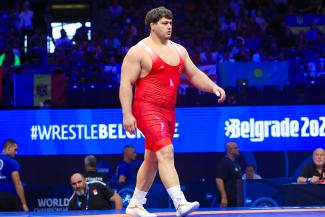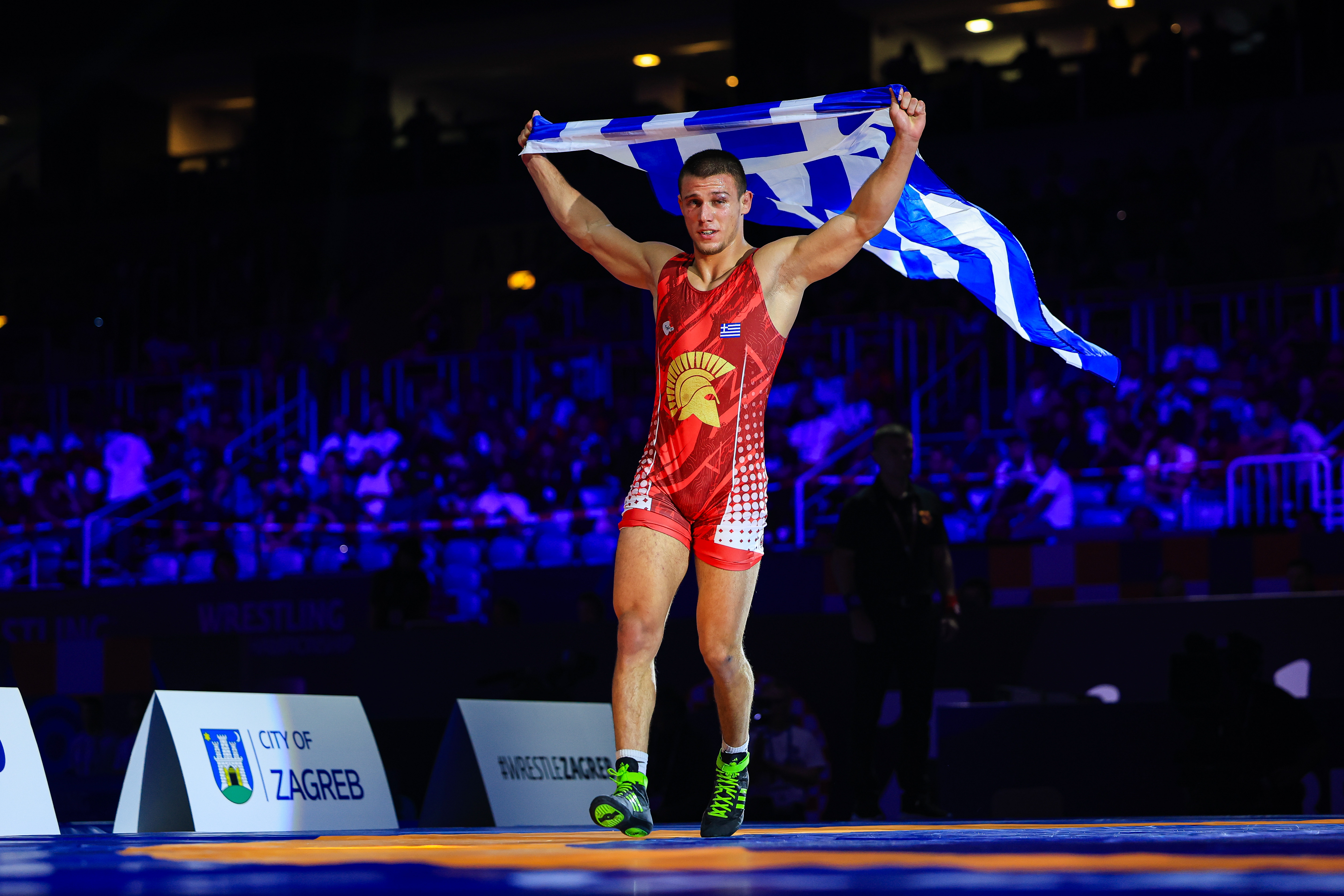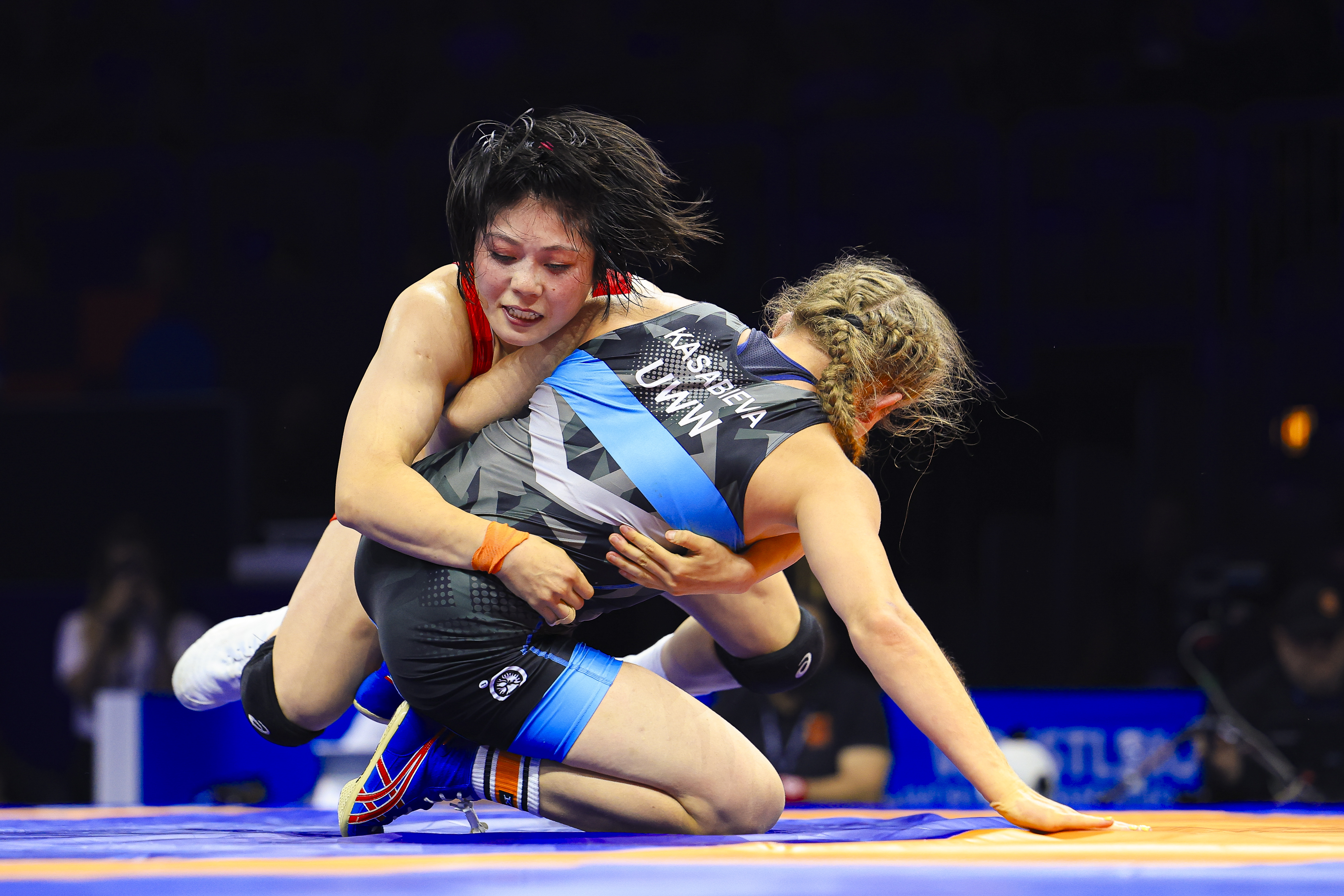Women in Sport High Performance Pathway call for candidates
Saturday, April 9, 2022 - 12:06 By United World Wrestling Press

CORSIER-SUR-VEVEY, Switzerland (April 8) -- United World Wrestling is calling for candidates for the Women in Sport High Performance Pathway programme.
The Women in Sport High Performance Pathway (WISH for short) is supported by Olympic Solidarity and was developed to target women and sport development, according to Recommendation 6 from the IOC Gender Equality Review Project (March 2018).
This recommendation states, as an action, to encourage ‘Balanced gender representation for coaches selected to participate at the Games.’ Specifically, the working group recommended that ‘the IOC coordinates the development of an action plan in collaboration with Olympic Movement stakeholders for more women to be eligible to participate at Olympic Games. It is also recommended that a baseline for female entourage members at the Olympic Games is established.’ Closing the gender gap in coaches at the Olympic Games has been reiterated as a priority for the IOC in the new IOC Gender Equality and Inclusion Objectives for 2021-2024, objective 15 “Taking into account that women represent 10 per cent of coaches at the Olympic Games, the IOC to coordinate the development of an action plan in collaboration with IFs & NOCs, for more women to be eligible and selected to participate at World Championships and the Olympic Games”.
The WISH Programme has been developed in cooperation with the IOC/Olympic Solidarity, ASOIF, AIOWF and several International Federations already engaged in projects to increase opportunities and pathways for high-performance women coaches. This programme has also been supported by the International Council for Coaching Excellence (ICCE) ICCE | Home who voiced a global call to action to increase the number of women in coaching at all levels and so provide athletes with greater choice. This call to action is supported by ensuring there is a strong and sustainable pipeline of women coaches equipped to step up to elite roles, maintain their roles and mentor future high performance coaches both women and men.
About the Programme
The programme runs over 21 months and allows women who are involved, or have the potential to be involved in elite coaching, to access leadership training, leadership mentoring and complementary sport-specific training led by the IF (UWW) and with the engagements of the National Olympic Committees.
A cohort of 26 women from six sports and 23 nations completed a pilot women’s high-performance coach programme (WSLA HPC) led by the same delivery team from 2019-'21, which had many successes despite the global pandemic. Several women have gone on to be leading or supporting national programmes, appointed into national coaching roles and have had success at championships. One of the coaches has attended the Olympics as a coach and several others have led their team to World Championships.
The programme is special in that Olympic Solidarity and IOC with the IFs (UWW) and NOCs will continue to track and support these high performance women coaches going forward and a commitment has been made to support a series of new cohorts of women coaches in the next three years.
Exact dates will be communicated once we have received the expressions of interest from the NFs and have confirmed the number of participants. The organisers will work closely with IFs (UWW) on the planning and dates, but it is proposed that the first cohort will commence in May 2022 with a residential week in the UK from August 14-20 2022. The second cohort will commence in August 2022 with a residential week in the UK from October 23-29 2022.
The women coaches for the programme will be selected with an aim to target those who have the necessary level to be successful at the Regional and/or Continental Games, World Championship, Youth Olympic Games ‘YOG’ and Olympic level and are working with national teams who are also targeting this level. Additional support for these coaches to work towards their objectives in coordination with the various stakeholders will be provided as part of the programme before, during and after the programme.
At the end of the 21 month period, the best-identified candidates who may require more support to progress will be invited to attend a more specific and top-level coaching education programme under the umbrella of their respective IF (UWW). For this second part, candidates could benefit from another Olympic Solidarity scholarship through the Entourage Unit.
These coaches will be selected based on the following criteria:
- Recognised by their International Federation, National Federation and their National Olympic Committee as being a part of, or having the potential, to be a part of a national delegation to the Regional and/or Continental Games, World Championships, YOG and/or Olympic Games in a sport on the Summer or Winter Olympic Games Sport Programme. Coaches who are working outside of their host nation can also be considered.
- Identified by the respective International Federation to be targeted for mentorship support to help them prepare towards participation with their athletes/team at the Regional and/or Continental Games, World Championships, YOG and/or Olympic Games.
- Able to integrate, or are already integrated into national programmes that are in pathway to qualify athletes for the Regional and/or Continental Games, YOG, World Championships and Olympics at the World or Continental/Regional events or via the Tripartite system.
- Have no history of anti-doping violation, safeguarding violation, manipulation of competition or other ethics violation.
- Able to commit to the whole programme.
- Have good written and spoken English (min IELTS 6.5).
If you're interested in participating in the Women in Sport High Performance Pathway programme, please contact your National Federations before April 12 with your preferred start date.


 World champion at 79kg Georgios KOUGIOUMTSIDIS (GRE) is moving up to 86kg. (Photo: United World Wrestling / Kadir Caliskan)
World champion at 79kg Georgios KOUGIOUMTSIDIS (GRE) is moving up to 86kg. (Photo: United World Wrestling / Kadir Caliskan) Miwa MORIKAWA (JPN), world 65kg champion, is entered at 68kg. (Photo: United World Wrestling / Kadir Caliskan)
Miwa MORIKAWA (JPN), world 65kg champion, is entered at 68kg. (Photo: United World Wrestling / Kadir Caliskan)
Share your thoughts.
Comments